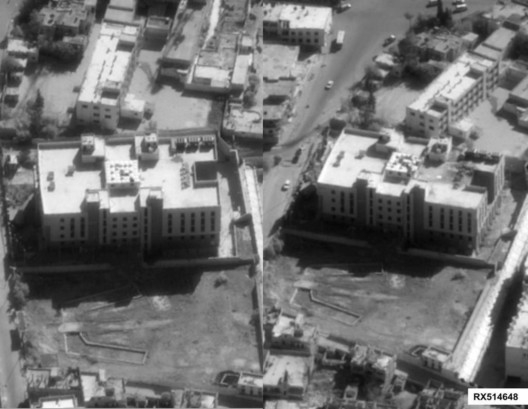
The realisation by the West and some Arab countries of the threat Daesh represents has led to a series of military responses, which to a degree may be construed as a new chapter of the 2003 Iraqi war.
Some of the triggers of the latest conflict are more recent: the arrogance of the Nouri Al Maliki government, Turkey’s open door policy to jihadists worldwide, the reckless financing by some GCC states to Daesh. There are longstanding issues as well: the basic extremism of those who don’t hesitate to kill anyone who thinks differently, the Sunni-Shiite divide. In the end, US President Barack Obama decided to strike militant targets in both Iraq and Syria, including Al Qaida local affiliate Al Nusra, and one can only rejoice considering the grim reality of the threat — whatever the dullard US Republican Representatives may think of.
Now, there is one logical question that demands an answer: is the move going to be a success? Military experts have been among the first to express perplexity since many of them believe that airstrikes alone will never be sufficient to achieve the desired results, unless they are supported by troops on the ground. They have also cautioned that the strikes shouldn’t alienate the Sunnis any more. Furthermore, the belief of the US that they will be able to train local forces in time (Iraqis and Kurds), is as fragile as their hope that they would be able to rely on a Syrian non-Jihadist opposition, which is so weak that it is a surprise it has not completely disappeared. Lastly, the double act by some allies and the behaviour of Turkey lend to the line of thinking that the war will be long and painful for everyone. The ‘containment’ approach favoured earlier is no more viable; what’s needed is a major commitment in Syria, which would ultimately imply fighting Bashar Al Assad’s regime, and this strategy will be resisted by Russia and Iran. Also, a purely military solution limited to airstrikes may give unpredictable results at best. One has therefore to look elsewhere for solutions.
A first step to take is obviously to secure an improvement of the relationship between the West, its Arab allies, and Iran. Can one seriously reckon that the September International Conference of 30 countries in Paris to discuss peace and security in the region could have had any chance of success in the absence of Iran? Actually, a persistent Israeli lobby thinks yes: the West indeed would have nothing to gain from Iran, “an ideological entity mired in manufactured conspiracies” as per Dennis Ross (Gulf News, September 24). Diplomacy, on the contrary, is the art of engaging everybody, especially enemies; no sensible mind will ever believe that positive developments will come about in the region without Iran being in agreement. To take this argument further, even though ‘the enemies of our enemies’ are not necessarily our friends — the developing relationship between the Al Assad regime and the US may nevertheless make us believe on the contrary — one should make a difference between our ‘enemies’ and our ‘adversaries’, as Renaud Girard subtly underlined in a recent opinion in Le Figaro. “One should distinguish enemy from adversary. Iran nor Syria are enemies. They don’t fight us; they don’t kill us. Daesh does,” he said.
Another field of reflection is the perennial Sunni-Shiite feud, even though deepened by the US every time they could as an instrument of division within the Arab world. The presence of five Arab countries within the coalition led by the US indeed required some kind of explanation to the local populations. An across-the-board pedagogy insisted on the fact that Daesh had nothing to do with Islam, that the coalition’s main objective is to bring back peace and stability in the region. But how long can such a plea last if, at the same time, some Arab governments still believe it is more important to fight the Al Assad regime than to fight extremism especially if sections of their populations tacitly continue favouring extremist Sunnis over Shiites?
In the end, fighting Daesh is not only necessary — their barbaric attitude is an affront to human values — fighting it should allow to restore stability in the region whilst protecting neighbouring states as well as the West from future attacks. But the success of the American intervention requires that priorities are defined — fighting terrorism comes before any campaign to topple Bashar Al Assad. It also needs other Arab states to play their part: a new Iraqi government to desist from aggravating divisions, and Turkey to change its perception of the West and other Arab countries as idiots. Still, it is not enough.
“The question of the Sunni radicalisation will not find any answer on the basis of Shiite militia, Kurd factions and Western strikes,” Peter Harling wrote on September 15 in Gulf News. In other words, the combination of Western airstrikes and Arab pilots from Jordan or Saudi Arabia will never overcome Daesh unless Iran is part of the game, and the Sunni-Shiite divide is seen as a religious matter, which anybody can discuss about without killing each other as happened centuries ago.
These are just a few clues to solutions that are mainly in Arab hands — and the West would better keep off.
— Luc Debieuvre is a French essayist and a lecturer at Iris (Institut de Relations Internationales et Strategiques) and the Faco Law University of Paris.










